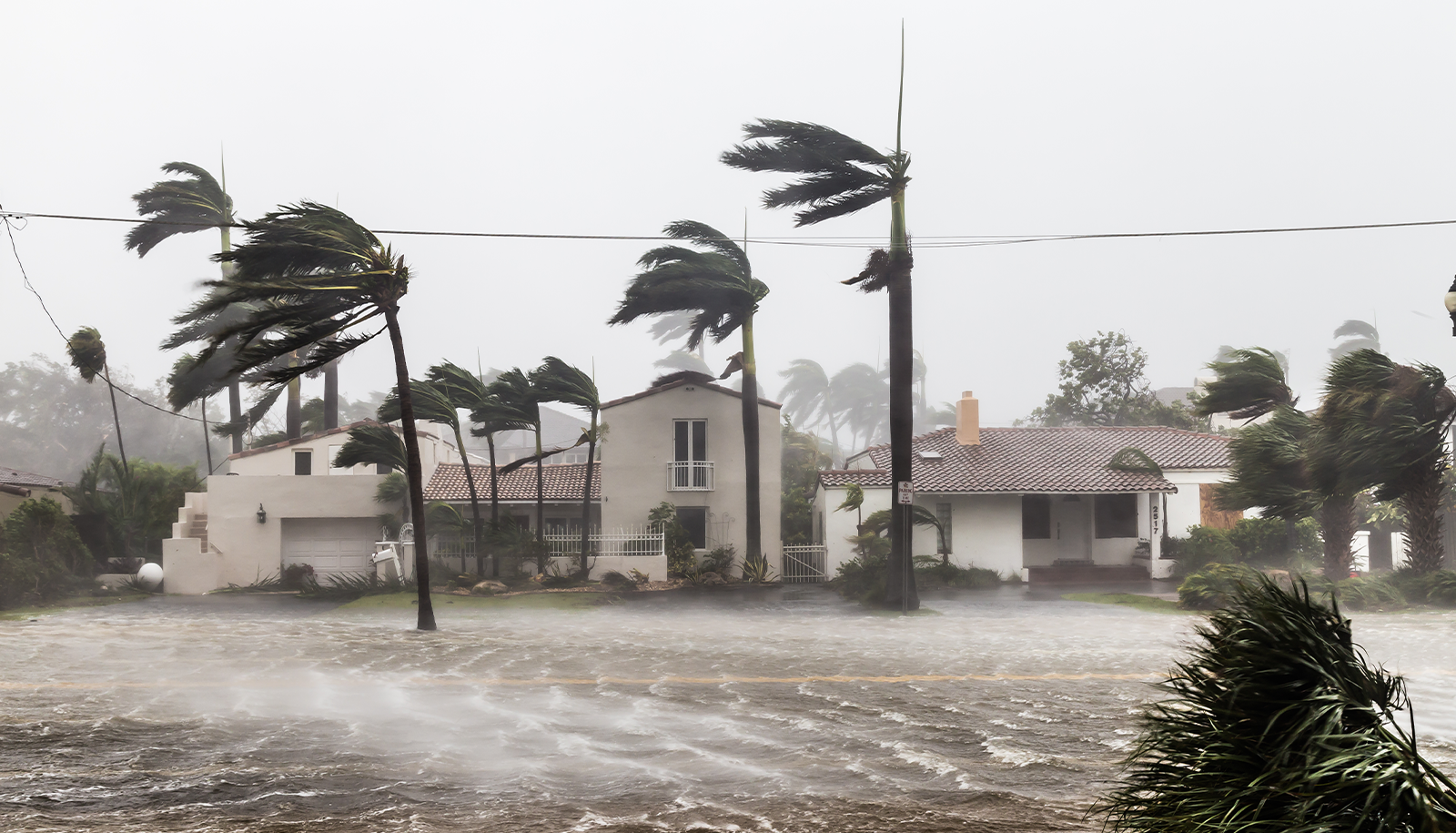For those living in coastal areas — especially along the Atlantic Ocean, in states like Florida — hurricanes are a big threat. In fact, there’s even hurricane-related insurance for those who live in the potential path of hurricanes.
But what exactly are hurricanes, when do they make landfall, and when is hurricane season? You’ll have all these questions (and more) answered below in the top 5 questions about hurricanes in Florida.
1. WHAT ARE HURRICANES?
A hurricane is a cyclone-shaped storm that originates over tropical water. Beginning as a tropical disturbance, escalating to a tropical depression and then tropical storm, before finally becoming a hurricane.
Hurricanes gather their colossal power from the warm ocean waters as they travel, intensifying the winds at the eye of the storm. In fact, it’s the wind speed itself that separates hurricanes from tropical disturbances, depressions, and storms. When the wind speed of a tropical cyclone reaches over 74 miles per hour, it’s considered a hurricane.
Once deemed a hurricane, these storms are then scaled on 5 categories based on wind speed severity, known as the Saffir-Simpson Hurricane Scale.
2. WHEN IS HURRICANE SEASON IN FLORIDA?
June 1st - November 30th is the official hurricane season in Florida each year. While June - November is the official season, August and September are typically the months when most hurricanes occur.
According to the National Oceanic and Atmospheric Administration (NOAA), of the 301 hurricanes that have made landfall since 1851, 120 have hit Florida, making it the most hurricane-prone state.
3. HOW DO YOU PREPARE FOR HURRICANES IN FLORIDA?
If you live in Florida, you already know that when there’s a tropical storm or hurricane watch, everyone flocks to the stores for water, batteries, and other essential storm supplies.
Being in a state where approximately 1,350 miles of it is bordered by water, hurricane preparedness is vital. But what can you do to be prepared in advance?
- Create an emergency plan with your family and loved ones.
- Routinely check your batteries, flashlights, candles, lighter/matches, emergency and first aid kit, and other safety supplies. Restock as needed, prior to any storm watch announcements.
- Ensure you have plenty of gas on-hand if you own a generator.
- Keep enough extra bottled water and non-perishable food (don’t forget a manual can opener!) to last at least three days in case of a power outage.
- Invest in a cooler and plenty of ice packs, should you need to empty out your fridge. Freeze anything that can be frozen in advance if you suspect a power outage.
- Stock additional special needs items — like medication or baby food or diapers — if possible.
- Consider additional safety measures for your home, like hurricane shutters and/or windows.
- Keep your landscaping trimmed — tall trees or branches growing too close to your home could cause severe damage if broken and blown by the strong winds. Clear any lawn debris and regularly clean your gutters.
- Secure and reinforce your garage door, as well as doors in your home.
- Prepare for flooding by waterproofing wherever possible around your home and keep sandbags (to line doorways) on hand.
- Purchase hurricane-related insurance so you’re covered for any flooding or windstorm damage.
3. WHEN IS A HURRICANE CONSIDERED TO HAVE MADE LANDFALL?
According to the U.S. National Hurricane Center, “landfall is the intersection of the surface center of a tropical cyclone with a coastline.”
That said, the strongest winds in a hurricane aren’t always near the center of the cyclone’s eye. The strongest winds could be found on land, even without landfall, or could be out at sea.
What’s more, regardless of landfall, hurricanes may directly hit, indirectly hit, or strike (come in contact with the storm’s “strike circle,” close to its eye) locations.
4. WHAT HAPPENS TO A HURRICANE AFTER LANDFALL?
After hitting land or making landfall, hurricanes will typically lose strength. Without help from the warm ocean water, the energy of the storm decreases.
However, even after making landfall, hurricanes are still dangerous, hazardous storms. Their high winds can cause major destruction and property damage.
But that’s not all: the high hurricane winds can produce other disastrous weather conditions, like tornadoes and storm surges.
Hurricane season in Florida is not a laughing matter, but being prepared and better understanding the dangerous weather will get you ready for future tropical cyclones.
If you need help finding the best homeowners insurance coverage for the best price, start by speaking to a SimplyIOA agent at 833.872.4467 or get a homeowners insurance quote online now.










